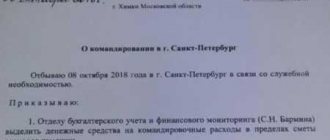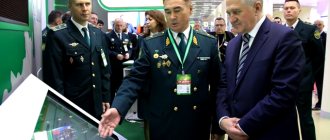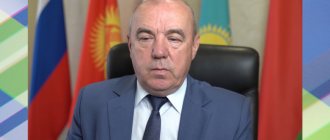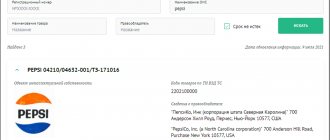International Customs Forum 2019
28.10.2019
On October 24-25, the International Customs Forum was held at the International Trade Center in Moscow, which was attended by teacher of the Department of Management Victoria Viktorovna Glekova and students of group TO-17/3 Anna Borovikova, Ekaterina Kalgina and Anastasia Smirnova.
The forum was attended by V.I. Bulavin is the head of the Federal Customs Service of Russia, his deputy L.A. Lozbenko – Colonel General of the Customs Service, A.G. Siluanov is the Minister of Finance of the Russian Federation. There were many employees of the Russian Customs Service and business representatives. Both sides expressed their opinions on the reforms being carried out in the customs regulation system. An impromptu vote conducted by L.A. Lozbenko at the plenary session “Reforming customs authorities. Adapting to systemic changes” showed that 98% of participants support these reforms.
In addition, the speeches of foreign delegations were also informative, which made it possible to appreciate the full scale of this forum. One of the most exciting moments was the exhibition of technical means for supporting the activities of customs authorities.
The forum program included many sections. Among the most relevant topics of the round tables are “Customs and business: horizons for cooperation in the fight against counterfeiting”, “Prospects for the development of the AEO institute in the Russian Federation”, “Customs representative” and “Customs information technologies”. At the panel session “Customs Reform”, representatives of the University of Technology were able to take part in the voting, which was held among the audience. Also during the speech, there was a live broadcast with the electronic declaration centers of the Moscow and Baltic customs.
Customs becomes invisible to business, but no less effective for the state. In the conditions of direct inclusion from the Electronic Declaration Center of the Moscow Regional Customs, it was said that every minute the EDC issues declarations, each of which brings 1 million rubles to the budget of the Russian Federation - about 6 million per minute without the mandatory presence of the declarant. In addition, the reduction in terms of customs clearance of goods under the new Customs Code of the EAEU naturally cannot but simplify the activities of participants in foreign trade activities.
Russian Customs strives to promote business and conduct joint activities to simplify customs formalities.
This event is very symbolic, since October 25 is the Day of the Customs Officer of the Russian Federation. For students of the University of Technology, as for future workers in the field of customs, the experience of attending ITF 2021 is truly important, useful and invaluable.
Ministry of Foreign Affairs of the Russian Federation
Speaking at the international conference of heads of customs services of states in the European region of the World Customs Organization, Deputy Prime Minister - Minister of Finance of Russia A.L. Kudrin noted that Russian customs authorities daily provide $120 million to the budget, which is 40 percent of federal budget revenues in year.
At the same time, A.L. Kudrin believes that customs authorities should not be primarily fiscal. The main functions of customs should be aimed at regulating trade.
Russia, according to the Deputy Head of the Russian Government, strives to establish international standards in the activities of customs authorities - this is precisely what the adoption of the new Customs Code, the Law “On Foreign Trade Activities” and the Law “On Currency Regulation and Currency Control” are aimed at. Currently, the technical modernization of customs authorities is underway thanks to a World Bank loan in the amount of $140 million. A.L. Kudrin expressed hope that upon its completion the level of efficiency of customs activities in Russia will increase.
Speaking about the investment climate in the country, he emphasized that the Government expects to maintain high growth rates of foreign investment in the Russian economy in the coming years. In 2003, direct investments in fixed assets of Russian enterprises amounted to $72 billion, including $6.5 billion from foreign investors.
Noting that Russian GDP growth last year was 7 percent, A.L. Kudrin emphasized: “We are going to maintain the rate of economic growth, which should ensure an increase in the well-being of the population.” The government also expects to maintain a sustainable budget surplus in the coming years. According to A.L. Kudrin, the price of Russian oil in 2004 will remain high and amount to more than $26 per barrel.
This year the Government also intends to complete negotiations on Russia's accession to the WTO. “We can say that 2004 would be the desired date for our country to join this organization. However, everything will depend on the further progress of the negotiations,” said the head of the Ministry of Finance, adding that Russia “is not ready to join the WTO on any terms.”
Regarding Russian-Belarusian relations, the head of the Ministry of Finance noted that Russia expects concrete actions from Belarus to introduce the Russian ruble on the territory of Belarus from January 1, 2005. According to him, the other day the Ambassador of Belarus and the head of the National Bank announced their readiness to hold negotiations on the introduction of the ruble as a single currency by the end of the first quarter of 2004.
A.L. Kudrin also said that Russia has put forward an initiative to create, on the basis of the Russian Government Commission on Protective Measures in Foreign Trade, a joint commission with Belarus to develop a unified customs and tariff policy. He expressed hope that within the framework of the work of this body it will be possible to resolve all bilateral customs issues.
Alena Khotmirova: About the International Customs Forum 2021 and new technologies in customs affairs
Today we are talking with a foreign trade expert,
customs practitioner
and customs blogger
Alena Khotmirova
VED24: The International Customs Forum 2021 was held.
What were the key topics raised there? A. Khotmirova: The Customs Forum was held under the auspices of “digitalization, automation and IT technologies.” At all sessions, this basic idea of the current Russian development of foreign economic activity was voiced. Scientific progress is moving forward at a tremendous pace, and with it the customs service. They talked about the importance of developing electronic customs and electronic declaration centers, about digital opportunities for business, in particular, ideas for export were widely covered, about the transition from automation to artificial intelligence as the next step in the development of the Federal Customs Service (FCS).
An authorized economic operator, including international recognition of this status, is a very current topic now, a labeling and traceability system, measures to support exports - all this was discussed at the forum.
Alena Khotmirova: The global goal is the introduction of artificial intelligence
VED24: At one of the sections of “MTF-2021” a statement was made that “in the coming years we will see more changes than in the last 50 years.” Plans of the Federal Customs Service - what will happen next in the field of customs, what was voiced on the sidelines of the forum?
A. Khotmirova: The main achievement of the FCS in recent years is, of course, the creation of a unified network of electronic customs offices and Electronic Declaration Centers (EDC) - the basis of the Comprehensive Development Program for 2018-2020.
Today, the customs service has moved from 650 customs clearance posts to 16 CEDs, and this is a huge leap forward. The FCS moved smoothly from the introduction of electronic declaration to process automation. Now we are all at the stage of digitalization of the customs clearance system, the global goal of which is the introduction of artificial intelligence or, as they now say, the foundation of intelligent customs.
In general, all plans for the introduction of IT technologies in customs clearance sound very pretentious, however, we see how much customs has moved forward in the last decade, and with what huge steps it continues to develop at an increasing speed, so I, for one, believe that everything planned will be implemented in the very near future.
As Ruslan Davydov said on the sidelines of ITF-2021, the next stage in the development of the customs sector is intelligent customs and the introduction of artificial intelligence. That is, this is an even greater degree of automation, an increase in the speed of processing information and requests. Soon everything will “fly”, I think.
Alena Khotmirova: Today you can submit customs declarations online from anywhere in the country
VED24: What has changed in the field of foreign economic activity over the past 10 years, what key achievements of the Federal Customs Service can be highlighted?
A. Khotmirova: Since 2002, the FCS has been introducing electronic declaration. This stage was very lengthy: the full transition was carried out only in 2014. Although it is not surprising: the Russian mentality is difficult to wean from paper media, “pieces of paper”.
But the following changes were not long in coming and were implemented much faster. Automation of customs clearance processes, in particular auto-registration and auto-issuance of customs declarations, were introduced in just a couple of years. And finally, the CED system. Now, in 2021, we see how much more convenient it has become to work. Now you can submit declarations from anywhere in the country: everything happens online and very quickly.
VED24: Electronic Declaration Centers (EDC) – is this a viable concept? What are the main problems of CEDS in your opinion?
A. Khotmirova: In general, I believe that the idea of creating EDCs is very viable and, as practice shows, convenient. Optimizing the number of customs personnel, reducing corruption risks, as well as reducing costs for the material and technical equipment of individual customs posts play a role here. Now, when there are only 16 CEDs instead of 650 customs clearance places that existed before. I think there are significant savings.
On the other hand, those who have been working in the customs field for a long time remember how they could call the inspector and clarify issues that arose on an emergency basis. Now this opportunity is practically gone: there are EDCs that cannot be reached at all. But foreign trade participants will soon get used to this, I think. Imagine when the intelligent customs project is implemented: there will no longer be a living person on the other side of the screen, but only a completely digitized process, what then? This, I believe, is the negative side of the idea of EDCs, but we are keeping up with the times and adapting to modern realities.
The second problem that exists today is the time difference. I have experienced myself when an urgent registration is required, but the EDC is already closed, and I have to wait for the next day. This question has been raised more than once, but the FCS’s answer so far is this: write to the CED. Upon a reasoned request from a foreign trade participant, CED employees will come out. But you and I understand that sometimes a declaration is needed here and now, and consideration of applications by the customs authority does not occur within an hour. Therefore, of course, there are some problems, but, on the whole, I believe that they can be successfully resolved.
VED24: Digitalization of foreign trade activities and customs affairs. The top officials of the customs service talk a lot about this, and this topic was raised at MTF-2021. Your comments, “digitalization of foreign trade activities” - how do we understand this?
A. Khotmirova: In simple terms, digitalization is the transfer of processes into “digital”. What does it mean? This is the introduction of modern digital technologies into all areas of our lives, including customs.
In the broad sense of the word, digitalization is the process of using digital systems that ensure the transmission and distribution of information flows in digital form. Simply put, why was electronic declaration introduced? To encode each value in each column of the declaration, convert it into numbers, since numbers are the easiest to manage: digital data is easy to send, analyze, and digital processes are easy to automate. And the main goal of all this is the automation of simple routine processes, on which previously a person, for example, an inspector, had to spend considerable time. At the same time, digitized processes are speeding up: for example, my latest export declarations are issued within 5 minutes, imagine what a huge leap this is in business development!
Digitalization not only helps to “speed up”, but automates the collection of statistical data and optimizes business schemes.
Alena Khotmirova: Customs declarations for export are issued within five minutes
An interesting idea was voiced at the customs forum. Within the EAEU we are introducing digital technologies, electronic document management... but! Unfortunately, there is no international recognition of electronic document management today. No matter what we automate and digitize internally, there will still be “paper” at the end. Work in this direction, as I know, has been going on for a long time, but here, I think, it is still difficult to negotiate with other countries. At least for the next 10 years, this probably won’t happen. Although…
VED24: Name three “headaches” of a foreign economic activity participant (declarant) today
A. Khotmirova: The first is, of course, the time difference. 11 time zones, dispatching the dispatch of declarations to the relevant EDCs - this, of course, gives rise to certain problems. But we are already getting used to this.
The second is the lack of feedback. And this applies not only specifically to customs clearance, but to many other related schemes, in particular, registration of preliminary and classification decisions, obtaining the status of AEO, customs representative or customs carrier. The processing time for applications is long and can be extended if the FCS has additional questions. It wouldn’t be easier to just dial a number and call, resolving the issue promptly, rather than exchanging official letters.
And the third problem - this is definitely a headache - is adjusting declarations after release. We are now all talking about automation and speeding up processes, but here it is the same as it was for 30 days. And no amount of calls, requests, or persuasion helps. The answer from the CED hotline is the same: read the customs code. I think that this issue worries not only me, but also many other customs specialists: participants in foreign trade activities, customs representatives, ordinary declarants. I think this issue needs to be resolved.
VED24: Probably the most difficult question in today’s interview is what should a person who is planning to engage in foreign economic activity do? Your expert advice
A. Khotmirova: Study, first of all study. Don’t refer to “maybe”, but figure it out. There are now a huge number of resources for foreign trade participants, including free ones. Expert consultations. For example, I also provide a lot of advice to beginning declarants and participants in foreign trade activities. There are many webinars being held today. Of course, I understand that there is a lot of information, and your head can spin from its abundance, but, nevertheless, if you decide to enter the foreign market, it’s worth doing. And most importantly – it’s interesting!
Alena Khotmirova: If you decide to enter the foreign market, it’s worth doing!
VED24: And the same question, only from the perspective not of a business, but of a person, for example, a university graduate who is going to work in the field of foreign trade and customs affairs. What should he do, what competencies does he need?
A. Khotmirova: I would start with developing stress resistance. This is one of the main useful qualities of a foreign trade specialist, customs inspector, declarant, and logistician. Working in emergency mode is very difficult; there are quite a lot of emergency problem situations. No one will wait for you when you deal with this or that article of the code - all this is done in parallel. Sometimes I feel like Spider-Man: you write a letter with one hand, type a declaration with the other, leaf through the customs code with the third, and at the same time talk with clients on the phone. If you are ready for this, then this job is for you.
VED24: It so happens that we are talking with you on the day of the Russian customs service. What would you like to wish our customs officers on their professional holiday?
A. Khotmirova: On this wonderful holiday, I would like to wish dear customs officers, first of all, health, family happiness and prosperity. Realization of set goals and responsiveness.
The International Customs Forum will be held in Moscow on October 24-25, 2021
We invite exporters of the Smolensk region to the International Customs Forum (ICF), which will be held in Moscow at the International Trade Center from October 24 to 25, 2021.
ITF is a new format of the annual Customs Service exhibition held since 1999. Every year, this event provides an opportunity for government and business representatives to gather on one platform to exchange experiences and discuss new initiatives in the field of foreign economic activity and customs administration .
Traditionally, the leadership of the Government of the Russian Federation , the Ministry of Finance of Russia , of Economic Development of Russia , the Federal Tax Service of Russia , other federal authorities, as well as leaders of the business community and representatives of foreign customs administrations take part in the events .
The International Customs Forum 2021 was attended by over 2000 participants , among them more than 110 representatives of foreign delegations from 27 countries , 5 international organizations ; more than 70 journalists from business and specialized media.
In 2021, the forum will once again become a meeting place for Russian and foreign experts in the field of foreign economic activity, who will take part in a rich business program and a modern interactive exhibition exposition.
The forum's business program includes more than 50 events combined into 15 thematic tracks . In addition to the round tables, ITF 2021 will host presentations and master classes on issues in the field of foreign economic activity and customs administration.
For exporters of the Smolensk region, this is a chance , within the framework of round tables, to discuss important issues with colleagues and FCS specialists , to identify problems that require solutions at the FCS level.
The forum's business program consists of 15 thematic tracks .
- Creation of a network of electronic customs and EDC. Results of the work.
- Customs legislation. Law enforcement practice.
- Development of extrajudicial mechanisms for resolving disputes in the customs sphere.
- Customs IT technologies. Personal account of a foreign trade participant.
- Ensuring the economic security of Russia.
- Customs payments. Development of Unified Personal Account services.
- The future of world trade: the role and tasks of customs services.
- The international cooperation. Eurasian integration. Interaction with customs services of the European Union countries.
- Risk management system. Categorization when implementing a risk-based approach.
- Prospects for the development of the institution of an authorized economic operator.
- National traceability system. Labeling of goods.
- Classification of goods according to the EAEU Commodity Nomenclature for Foreign Economic Activity.
- Customs examination: issues of appointment and implementation.
- Protection of rights to intellectual property.
- Electronic commerce. Automation of the process of paying customs duties.
You can register and get more detailed information
- at the call center 8 800 301 88 21,
- in the organizing committee telephone 8 499 449 73 19
- by writing a request to e-mail: [email protected] .
You can also register on the official website of the International Customs Forum on the Internet: customs-forum.rf (launch is scheduled for mid-June).
Applications for partnership participation can be sent to e-mail: [email protected]










